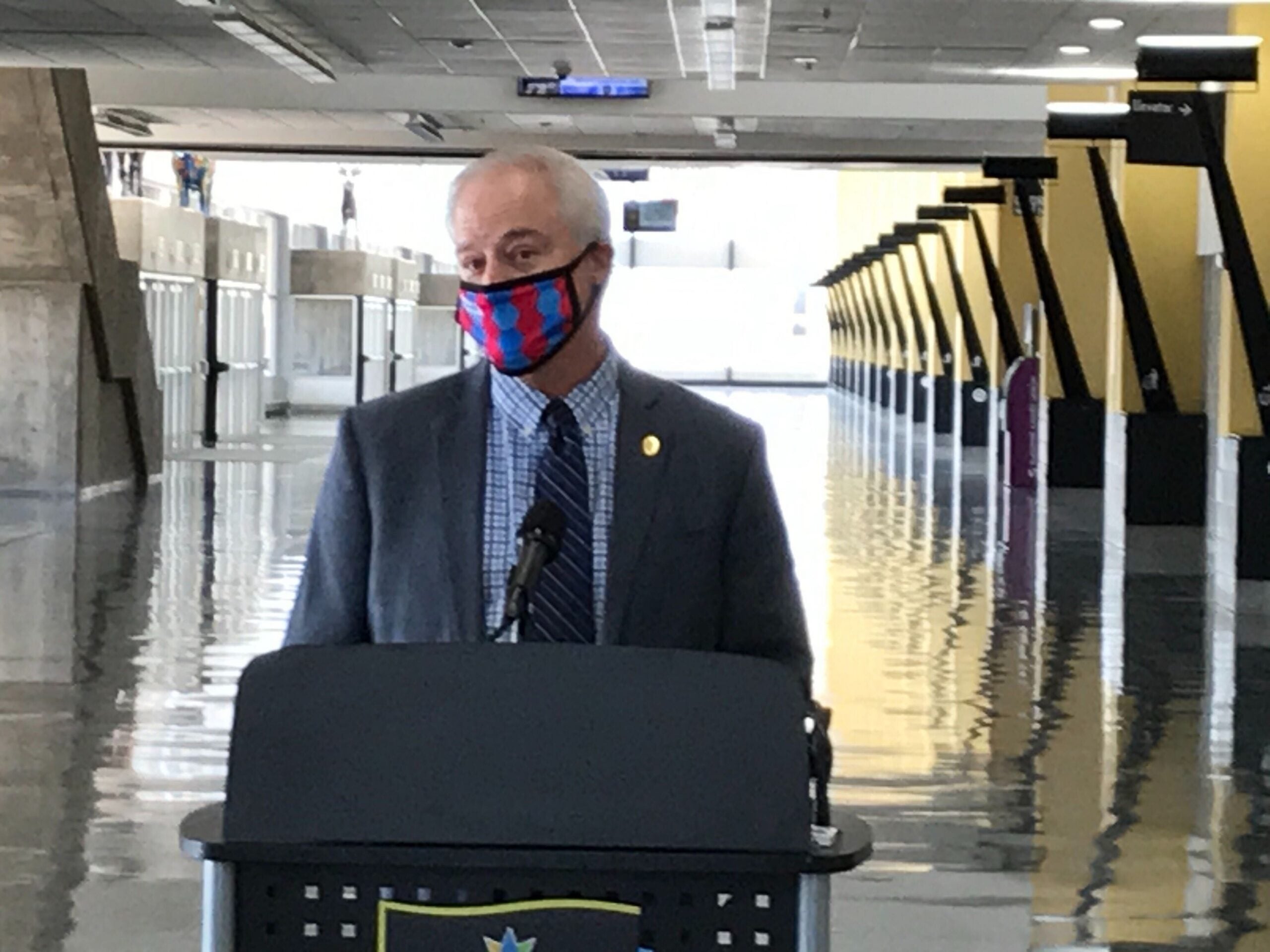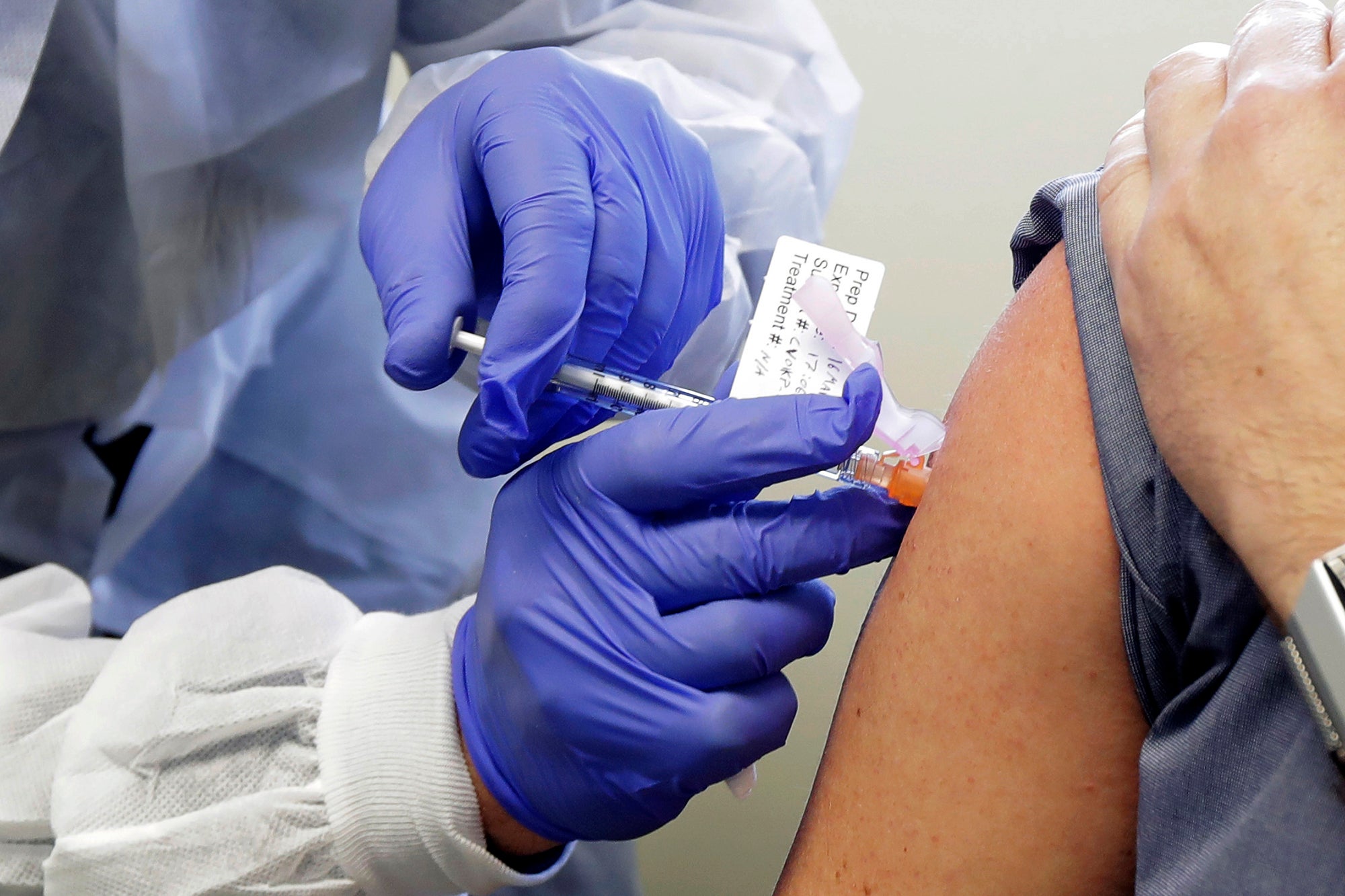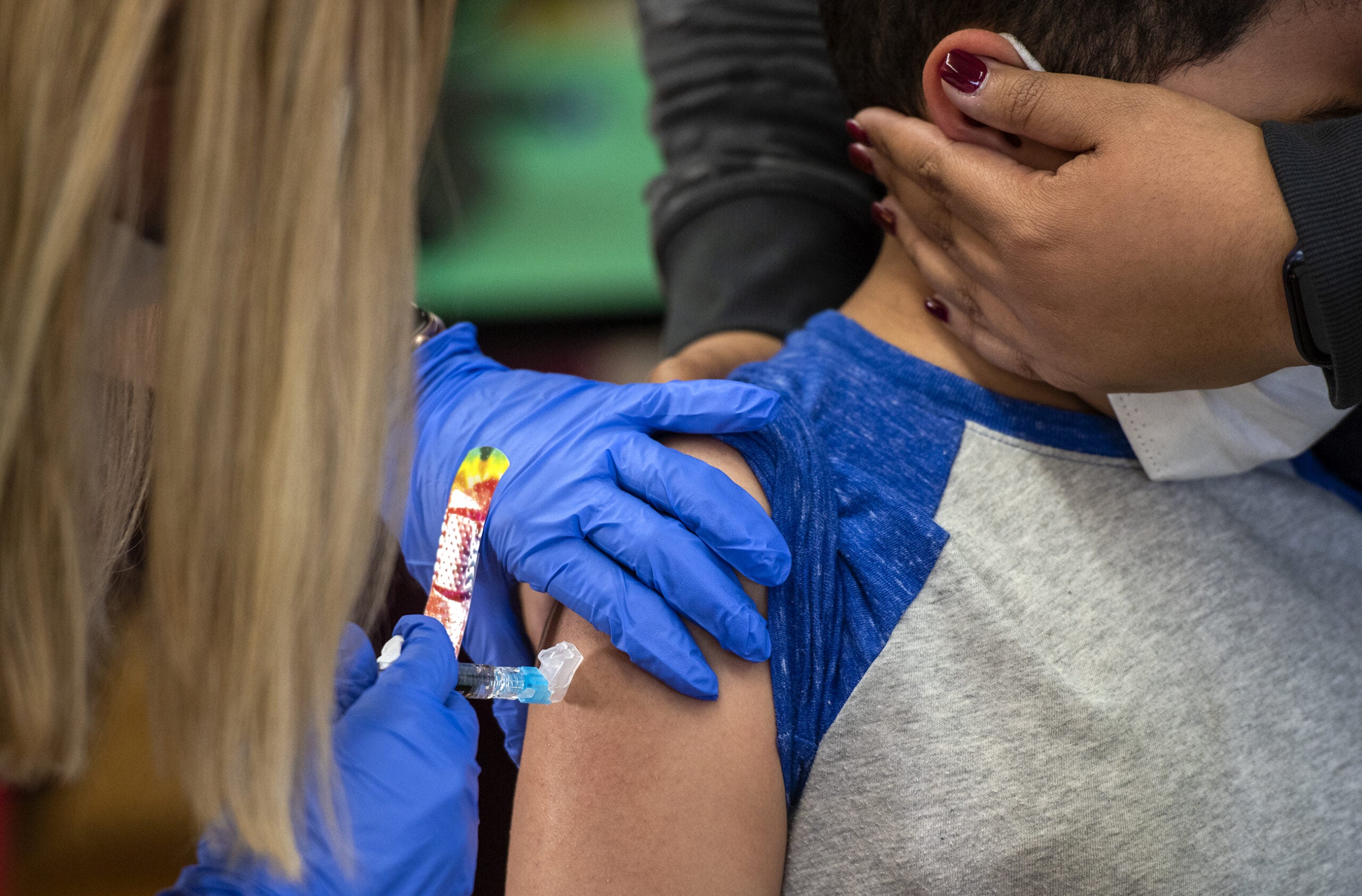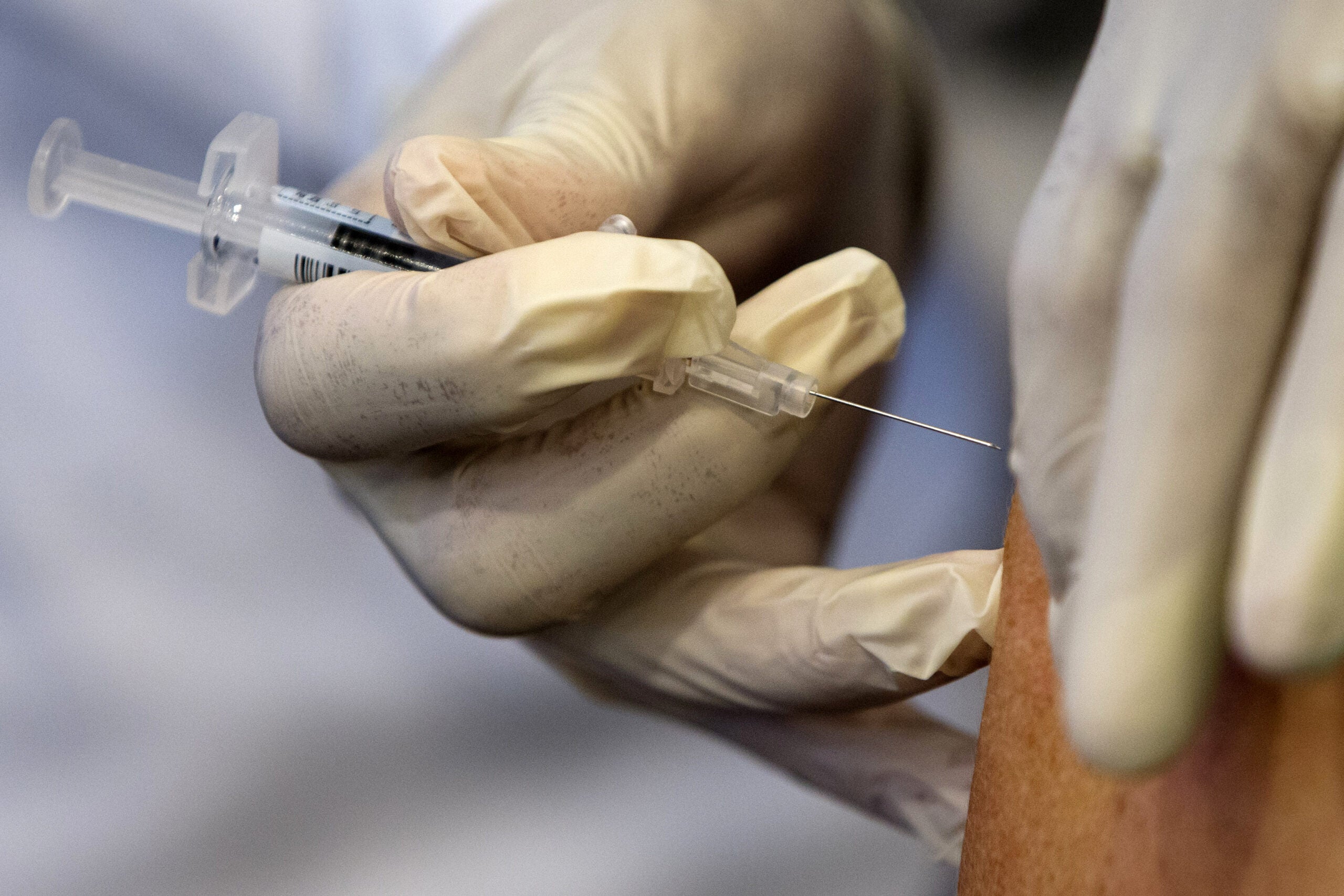Conditions could be ripe for two simultaneous serious outbreaks if Wisconsin has a bad influenza season and COVID-19 remains a threat, cautioned local health officials in Madison Monday as they urged people to get vaccinated against the flu.
“We’re terrified of the possibility of a twindemic, as we call it, as travel picks up again and as we see loosening of restrictions around the country. I mean, that’s the recipe for having disease then start to be transferred and reintroduced or introduced into different areas,” said UW Health pediatrician James Conway, who’s the health system’s immunization medical program director.

News with a little more humanity
WPR’s “Wisconsin Today” newsletter keeps you connected to the state you love without feeling overwhelmed. No paywall. No agenda. No corporate filter.
Flu is circulating in the Southern Hemisphere and even with limited travel, there are cases on the seasonal flu in Wisconsin already, Conway said during a press conference at the Alliant Energy Center along with health officials from the University of Wisconsin-Madison, UnitiyPoint Health-Meriter, SSM Health and Public Health Madison & Dane County.
Speakers talked about the challenges of increasing historically low flu vaccination rates in Wisconsin, and across the country, at a time many are working from home. Larger employers often hold flu clinics on site, an option that may not be available this year. Additionally, public vaccination sites will have to keep people apart while attempting mass inoculation efforts.
UW-Madison plans to offer flu vaccination on campus as it has in the past from Sept. 8-Oct. 10 by appointment. Last year, 16,000 influenza shots were administered to students, staff and faculty, according to Jake Baggott, executive director of University Health Services at UW-Madison. Shots will be given at the Nicholas Recreation Center and Nielson Tennis Stadium to provide space for social distancing.
Local health providers urged people to get vaccinated at their doctor’s office, pharmacy or public vaccination sites. There will also be drive-through vaccination at the Alliant Energy Center this fall for those who are uninsured or on Badgercare. Currently, the site offers free COVID-19 testing and anticipates flu shots will be available sometime in early October. Uninsured children 6 months and older can get a flu shot at one of the city’s free health clinics, said Sarah Hughes, immunization coordinator for Public Health Madison & Dane County.
The seasonal flu typically picks up in October, and health officials are urging people to get a shot early. During the 2019-2020 flu season, less than half the adults in Wisconsin — 48 percent — were vaccinated. The rate for children 6 months to 17 years old was higher, at 60 percent. Last year has been described as the worst in a decade for children when there were 188 pediatric flu deaths across the U.S.
Hughes said this year’s flu seen in the Southern Hemisphere is mild so far. However, the flu virus mutates.
Even though the strains don’t always match the annual vaccine that’s distributed, health officials say the vaccine still gives some protection and could prevent the need for hospitalization at a time health systems are concerned about having beds available for COVID-19 patients.
This comes as Wisconsin and other states are struggling to keep up with COVID-19 testing because of a shortage of reagents and other materials needed to process or gather specimens. At various times, the U.S. has been short of nasal swabs and reagents.
Already strained testing resources will be needed to identify flu cases.
“One of the things we worry about is fever, headache, cough and muscle aches. Most years, that’s the definition of the flu. Unfortunately this year, that’s the definition of the flu or COVID-19. And so anybody with those symptoms is going to need to be tested,” said Conway.
Wisconsin Public Radio, © Copyright 2026, Board of Regents of the University of Wisconsin System and Wisconsin Educational Communications Board.






